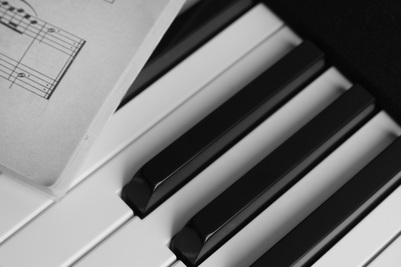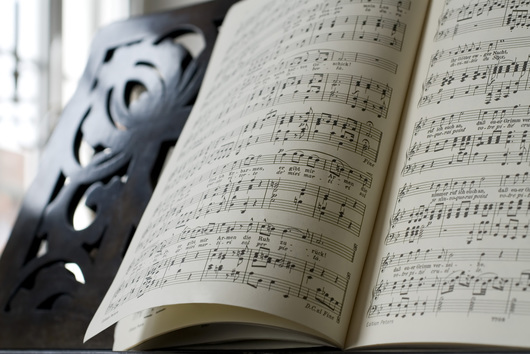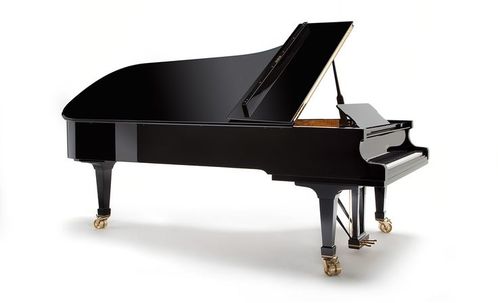Welcome to MyPiano.com.au
You have landed on a website which complements the piano and theory of music teaching of Marc Mercier.
In this website, you will find immensely useful resources concerning the development of piano technique; including technical work materials, sight reading, aural work, theory materials, AMEB resources and links, piano scores, a technical assessment page and more. Below, you will find useful reading concerning the benefits of learning music, and in particular, the piano. Enjoy! Why learn the piano?Learning the piano at any stage of your life is a rewarding experience. For children, in particular, learning music develops: 1. Cognitive skills and higher brain activity; 2. Co-ordination by increasing spatial reasoning abilities *; 3. Confidence, self esteem and social skills; 4. Enhances creative skills and emotional responsiveness; 5. Analytical skills; 6. Discipline; and 7. Promotes other areas of academic success. * Refer to the article from www.pianostreet.com on the correlation between learning and practising a musical instrument and enhanced organisation and spatial skills: Click to see blog article. Click here to see the research paper from Dr James Hudziak entitled: "Cortical Thickness Maturation and Duration of Music Training" It all starts here ...Parents are encouraged to purchase a good piano with a beautiful tone. I like to draw the following analogy:
Imagine a chef trying to cook a gourmet meal (or any meal for that matter) with nothing but a plastic knife, fork and a paper plate, or a mechanic trying to undertake mechanical repairs with nothing more than rudimentary tools like a screw driver and pliers. Whilst this analogy may seem extreme, it draws the point that a student cannot be expected to succeed with a $50 keyboard from a toy or appliance retailer. Teachers generally will agree that it is a false economy for a parent to purchase a substandard instrument on the understanding that the child "may ultimately not proceed to learn the piano". On the contrary, for a student to succeed, a student needs an instrument that is capable of producing a beautiful tone, is mechanically sound, is in tune, and has a balanced touch to each key. Without this, a student will quickly lose interest in learning. What can you or your child achieve here?
3-6 years of Age:
Students as young as 3 years of age can commence learning Suzuki Method from a Suzuki trained instructor with over 20 years experience. The idea behind the Suzuki Method is based on the "mother tongue" principle - wherein the child's listening ear is sharpest at the tender developmental age of 3-5 years of age. The focus is on developing the child's ear, both in terms of pitch and rhythmic awareness. The child learns solfa, basic rhythms, explores sounds and starts to familiarise him/herself with the correct posture at the piano. Careful attention is placed on developing a bodily awareness in relationship to the piano, as well as taking the first steps to effecting sounds at the keyboard. Ultimately, the child learns to play short pieces and gains confidence in combining accompaniment patterns to a melody. 7-12 years of Age: A child who is well positioned in primary school will have the capacity to explore more visual concepts and therefore learn to more fully read music. Students will undertake the study of theory and learn increasingly more challenging works in a structured manner. The option is there for students to undertake Australian Music Examinations Board (AMEB) or Trinity College (London)exams, or indeed pursue the course under the Suzuki Method. There is a focus on gaining technical skills through the learning of scales and other technical exercises, as well as enhancing musical and aural skills, particularly as they relate to the repertoire being learnt. 13+ years of Age: Older students (including adults) will gain from a more in-depth study of music theory along side the progressive study of piano repertoire. An understanding of theory provides for a greater understanding of the works being studied at the piano. This in turn enables the student to commence maturity towards being an independent learner. The student is fostered to view their works in a "musical" way, with significant attention placed on interpretation (dynamics, phrasing, tempo, style), technique and deeper understandings of the works and their composers. Posture and technique are drawn to the constant attention of the student. This holistic approach, together with assigned listening tasks (the student is regularly required to listen to interpretations of the works being studied as well as to other works), allows the parent-student-teacher learning triangle to push the boundaries, challenge concepts, and strive for quality and success. The above journeys are not always easy paths to walk, however, with expertise of guidance, dedicated and hard work, and a complete willingness from the parent and student to strive for success, much can be achieved - even in a short period of time. |
|




